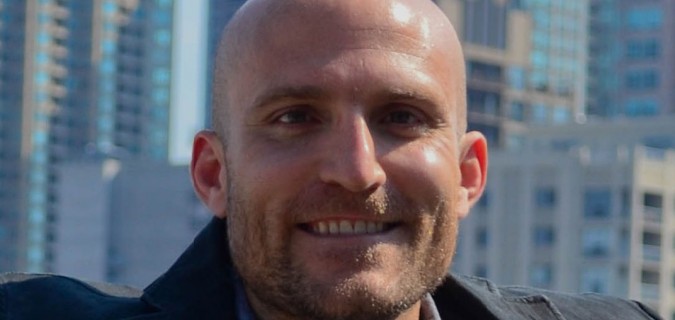Tracey Wiedmeyer co-founded InContext Solutions in 2009 and has served as the company’s Chief Technology Officer since its inception. He has 14+ years in both fast growing and large scale technology companies. Currently he’s enjoying a vibrant Chicago tech scene and tries to spend as much time enjoying the outdoors as possible. Follow him @wiedmeyer.
Who is your hero?
My heroes in life are my parents, not because they taught me how to be an entrepreneur or businessman, but because they taught me a work ethic that has allowed me to out-compete most anyone. Growing up in a proud middle class household where everything was earned has made me understand that it’s not where you went to school or how many people you know, but how you carry yourself that pays dividends over the long haul. My parents never made me feel like there wasn’t anything I couldn’t do or achieve. I’m just beginning to appreciate and understand some of their life lessons.
In business, I don’t have one single hero. I always read articles and books from some of the most influential people in business like Richard Branson, Shawn Achor, Jim Collins, Dan Pink, and many more. I have also worked with really smart people who force me to up my game every single day.
What’s the single best piece of business advice that helped shape who you are as an entrepreneur today, and why?
Great people do great things. It’s easy to operate as a one-man team when your business is small and the weight of the world seems to rest on your shoulders. But if you ever hope to build a lasting business with real value, you need to empower others to carry the torch. Everything — from hiring practices to the office wallpaper — can have a big impact on your workforce’s morale and trust. Focus on giving your employees the keys to the kingdom. Layer on a healthy dose of honest feedback and you’ll have a workforce that can do great things and grows professionally with your company. This is an ongoing process that will allow you to nurture and cultivate what will make you thrive.
What’s the biggest mistake you ever made in your business, and what did you learn from it that others can learn from too?
Every time I thought my business was more successful or bigger than it actually was, it has always taken a step back. I only realized some of these situations looking back, but now I can see many of them coming straight on. Every time I feel myself relaxing, I force myself to step back and refocus.
In today’s competitive environment, no one is very far behind. Becoming too complacent can really take a toll on your business. Spending energy to get your team back on track means you’re not spending your time focusing on customers, making another sale, or developing that next killer feature. All entrepreneurs should start building awareness before it’s too late. It’s so easy for entrepreneurs to get ahead of themselves. Resist the urge and embrace your ability to focus your troops.
What do you do during the first hour of your business day and why?
Most days I try to get a good, high-intensity workout. It sets the stage for the day and gets my juices flowing. I follow that up with a very cold shower. The way I look at it, if I’m able to endure those two grueling events, how hard can the rest of the day really be? You’d be surprise how this focuses your mind and gives you the resolve to concentrate on the most important things when you get to the office.
What’s your best financial or cash-flow related tip for entrepreneurs just getting started?
I’m sure everyone’s heard this before, but cash really is king — no matter what stage your start up is in. When I think about times my startups have run into tough times, more often than not it was due to faulty assumptions around cash. This includes spending it frivolously and not thinking of ways to make every dollar stretch as far as it can. It’s so easy to say, but harder to actually practice — especially when your business starts flourishing.
Quick: What’s ONE thing you recommend ALL aspiring or current entrepreneurs do right now to take their biz to the next level?
Cancel meetings for the next few weeks and force all your employees to go out and spend time with a customer to validate your business and the problems you’re solving. If you think you solve problems right now, getting employees at all levels to better understand your customers will open up as many meaningful opportunities for you than you’re probably solving right now.
What’s your definition of success? How will you know when you’ve finally “succeeded” in your business?
The easy answer is a life event for your business, like a sale or IPO. While that’s great validation for a business, there are so many more intangible things that can help measure a business’s success, such as how well it solves real problems for customers, adds sustainable jobs to the market, and provides founders with professional growth. However, I think the one thing that defines success to me is creating a sustainable business — one that is able to stand on its own and provide for its future through its profits. Investors and founders will eventually grow tiresome of a business that needs continual outside funding.













